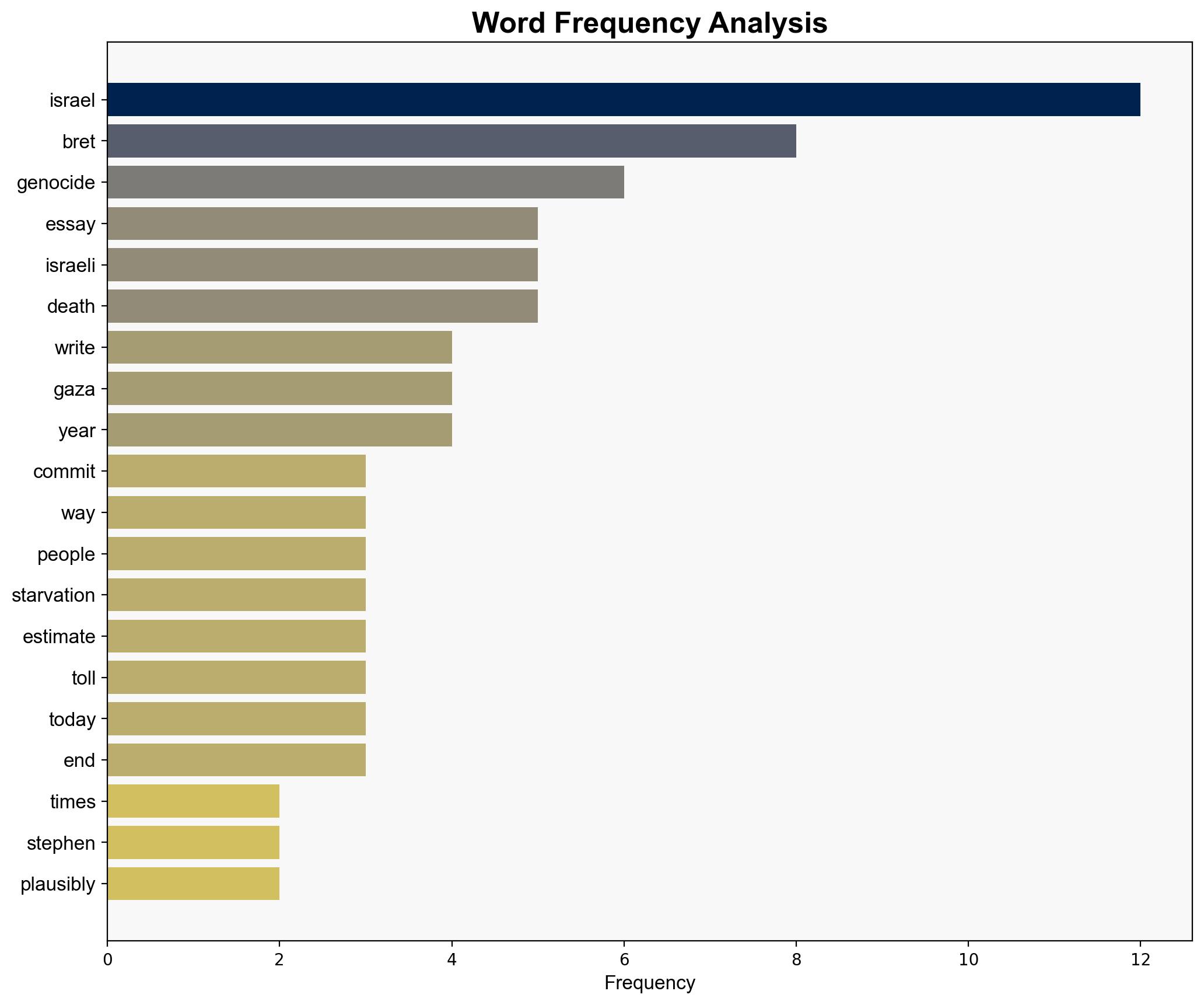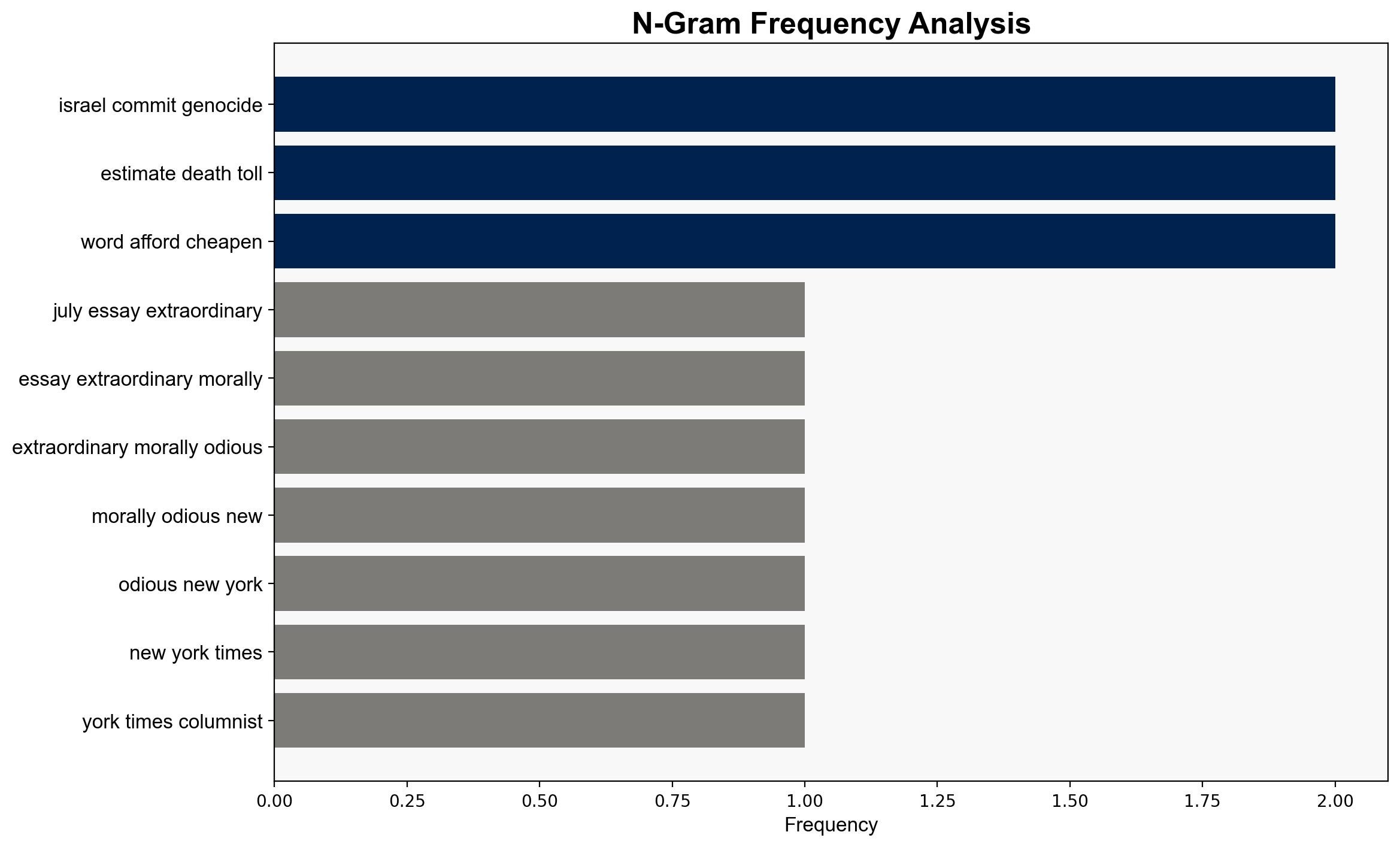The New York Times Bret Stephens Genocide Denier – CounterPunch
Published on: 2025-07-25
Intelligence Report: The New York Times Bret Stephens Genocide Denier – CounterPunch
1. BLUF (Bottom Line Up Front)
The analysis presents two primary hypotheses regarding Bret Stephens’ writings and their implications. The most supported hypothesis suggests Stephens aims to defend Israel by downplaying accusations of genocide, potentially influencing public perception and policy. Confidence in this hypothesis is moderate due to the complexity of motivations and the potential for bias in the source. Recommended action includes monitoring media narratives for shifts in public opinion and policy influence.
2. Competing Hypotheses
Hypothesis 1: Bret Stephens’ writings are a strategic effort to defend Israel by minimizing accusations of genocide and shifting the narrative to focus on Israel’s security concerns. This involves using rhetorical techniques to discredit critics and frame the discourse in a manner favorable to Israel.
Hypothesis 2: Stephens’ writings reflect a genuine belief in the arguments presented, driven by ideological alignment with Israeli policies. His commentary is not a calculated defense but rather an expression of personal conviction, albeit potentially influenced by cognitive biases.
3. Key Assumptions and Red Flags
Assumptions: Hypothesis 1 assumes Stephens is intentionally using his platform to influence public opinion and policy. Hypothesis 2 assumes his writings are sincere reflections of personal beliefs.
Red Flags: The source’s strong language and potential bias against Stephens may skew interpretation. Lack of direct evidence linking Stephens’ writings to deliberate strategic objectives is a significant blind spot.
4. Implications and Strategic Risks
If Hypothesis 1 is accurate, there is a risk of increased polarization in public discourse on Israel-Palestine issues, potentially affecting international relations and policy decisions. Hypothesis 2, if true, suggests the need to address underlying ideological divides that could exacerbate tensions. Both scenarios could impact geopolitical stability and influence media narratives globally.
5. Recommendations and Outlook
- Monitor media narratives and public opinion trends related to Israel-Palestine issues to identify shifts influenced by Stephens’ writings.
- Engage in dialogue with diverse stakeholders to mitigate polarization and promote balanced discourse.
- Scenario Projections:
- Best Case: Balanced media coverage leads to informed public discourse and constructive policy discussions.
- Worst Case: Increased polarization results in heightened geopolitical tensions and policy gridlock.
- Most Likely: Continued debate with periodic shifts in public opinion influenced by media narratives.
6. Key Individuals and Entities
Bret Stephens, Omer Bartov, Ralph Nader
7. Thematic Tags
national security threats, media influence, geopolitical stability, ideological bias




